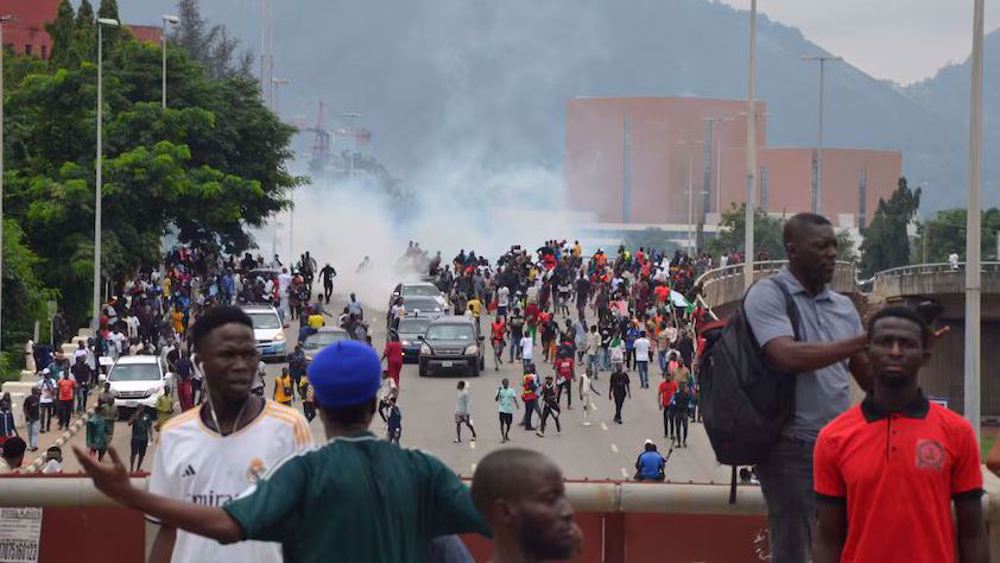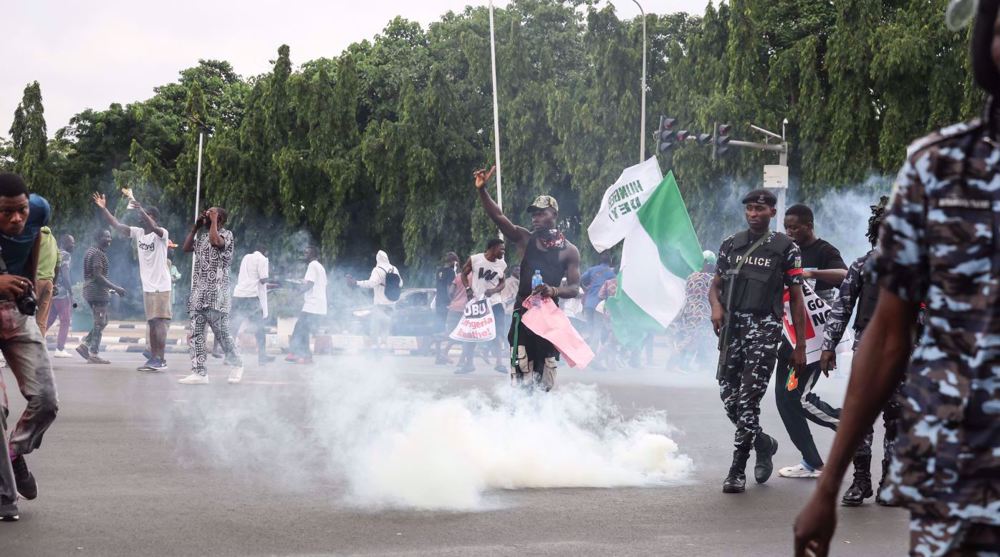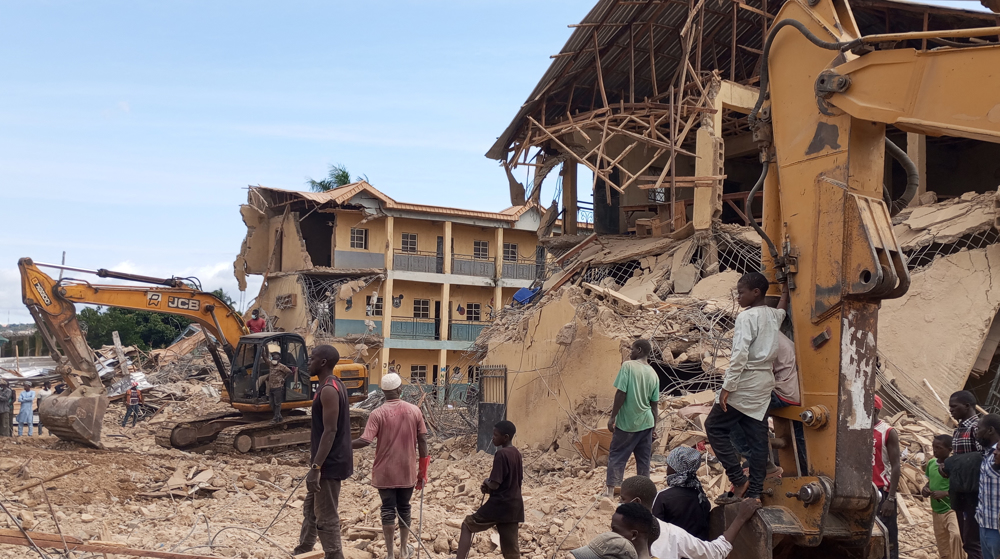26k displaced families in Nigeria’s Borno state received food: MSF
Doctors Without Borders says it has given food to some 26,000 families who have been displaced by the Boko Haram Takfiri terrorist group in northeast Nigeria, stepping outside its usual medical role in an attempt to prevent more children’s deaths.
Refugees in Maiduguri, the capital city of volatile Borno state, were “in desperate need” of food and other aid agencies were not stepping up, said the Paris-based relief agency in a statement on Saturday.
The group, which is known by its French acronym as the MSF, said that during the past three months it had distributed 810 tons of food in the city, the birthplace of the terror group, which is enough to feed the refugee families for two weeks.
“As a medical organization, it’s not usually the MSF’s role to provide people with food. But there are people in desperate need. Other organizations were not stepping in up until now, so the MSF was obliged to fill this gap,” said Philippe Le Vaillant, the MSF head of mission.
Around one million people, who fled Boko Haram’s violence in the restive state, are now living in Maiduguri and have almost doubled the population of the state’s largest city to 2.5 million, it added.
“Many people came to Maiduguri with nothing but the clothes on their backs. They have almost no way to make money, the cost of food has more than doubled in 12 months, and years of violence and insecurity have pushed to the limit their ability to cope,” Le Vaillant added.
The statement went on to say that the MSF has already established two large health facilities in the city, along with running two inpatient therapeutic feeding center (ITFC) for severely malnourished minors. It added that the relief agency is trucking 80,000 to 100,000 liters of water to the city on a daily basis.
Last month, the UN children’s fund reported that that around 400,000 children in Nigeria are at risk of famine, adding that 80,000 of the kids could die from hunger within months.
Government aid agencies operating in the region are currently under investigation for corruption in food distribution.
Large areas of the states of Borno, Adamawa, and Yobe are completely inaccessible and cannot be reached by aid agencies due to an insurgency by militants. People in the three states are reportedly in need of emergency food aid.
During the past several months, Boko Haram, which was mainly pushed deep inside the lush Sambisa Forest, a former colonial game reserve, resorted to carrying out sporadic raids against villages and bomb attacks against civilians in urban areas, killing hundreds of people.
On December 24, Nigerian President Muhammadu Buhari, who came to power in 2015 with a pledge to eradicate Boko Haram, announced that the army had “crushed” the terror group a day earlier by retaking its last key bastion, deep inside the thick forest in the northeastern province of Borno.
Boko Haram terrorists started their reign of terror in 2009 with the aim of toppling the Nigerian government. Boko Haram terrorists have so far killed more than 20,000 people and forced over 2.7 million others from their homes.
Missile fired from Yemen hits Tel Aviv
VIDEO | Iran emerging as aviation service hub through innovative solutions
Iraq exhuming remains of 100 Kurdish women, children killed by Saddam
Panama rejects talks with US over canal control
HTS rulers name al-Qaeda operative as Syria's new spy chief
Iran voices concern about rising insecurity, violence in Syria
VIDEO | Karachi sit-in amplifies nationwide call for justice for Parachinar victims
Iran strongly condemns Israeli bombing of Yemen's civilian infrastructure













 This makes it easy to access the Press TV website
This makes it easy to access the Press TV website